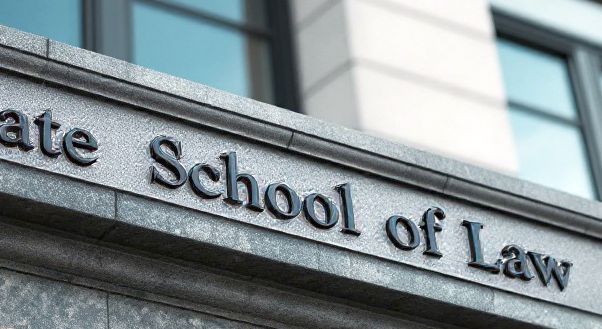NOTE: You can download our more detailed guidelines for the personal statement here.
Choosing a list of schools to apply to

You will find this similar in some ways to what you went through a few years ago in deciding which colleges to apply to. Three variables in particular will be key.
- First is whether you feel strongly that you would like to focus on schools in a particular state or geographical region.
- Second is particular legal specialties that law schools may emphasize. Many have clinics or centers or other highlighted operations in a particular area: family law, communications law, intellectual property law, and so on. This is worth factoring in, but bear in mind that at the point of law school application you may not have the knowledge base or perspective to set your sights firmly on any one area: 1L is a time when many law students come to realizations about their desired ends, which often can result only from having already begun the study of law. So, definitely look into this if you feel strongly about a particular area, but keep an open mind.
- Third is, to put it bluntly, where you see yourself in terms of reach schools, safety schools, and schools in between. This tracks pretty strongly with law schools’ rankings (the most significant, despite criticisms, is U.S. News and World Report’s), which in turn track pretty closely with their admissions profiles (meaning the LSAT and undergraduate GPAs that successful applicants have had in recent application cycles), and can also track with different school’s levels of financial aid support. It is a harsh but real fact that the standing of the law school you get your J.D. from can affect your post-J.D. prospects.
Another could be more personal choices: for instance, Catholic University students may be drawn more to law schools at Catholic universities generally.
Once you are clear on these points, your first and most important point of reference is the Law School Admissions Council website. In particular, spend a lot of time on the section titled “Choosing a Law School”. The tab titled “The Best Law School for You” includes a link to their “Law School Wizard” (this is under their “LawHub” portal) which allows you to enter your criteria and suggests the best fits. The tab titled “Official A.B.A. Guide to J.D. Programs” is really important: it lets you search for schools, then under each school’s listing you scroll down to get a profile of LSAT and GPA for each school’s previous year’s admitted class (if there is a link titled “Explore Admissions Data” – there isn’t for all schools – definitely look at that because it gives a granular view of LSAT/GPA application/admission ratios). Take a good hard look at those profiles and compare them with your own numbers: that will give you a realistic (though not final or definitive) picture of your likelihood of admission to different schools on your shortlist.
Another important point of reference: there are any number of law school fairs each year, and there is always one in the D.C. area. This gives you the opportunity to meet (in person; these are not online) with reps from many dozen schools, to ask questions, and to participate in open forums. Information about these is posted on the LSAC website and circulated via our pre-law email list.
Preparing the Application
Again, LSAC and its website are essential. For one thing, LSAC serves as the portal through which you can file all your application materials to all the schools you apply to (it's like the law school equivalent of the Common App for applications to college). The LSAC website (under the tab titled “Applying to Law School”) is the single most important point of reference for the details and technicalities – everything from how to initiate the process to how the credentials service works -- that you'll need to know about and understand.
One of the most critically important aspects of a law school application is the personal statement. Every admissions dean from every law school will swear that “it’s not just about numbers” – not just about LSAT score and GPA, in other words. And while it’s hard to ignore the numbers’ importance, it’s also demonstrably true that two applicants with identical numbers can be accepted or rejected based upon the personal statement.
Law schools insist that they want to know the person behind every application, and the personal statement is the one chance you have to show them who you are. It is not simply a résumé in prose form, and it is not a platform for grandiose statements about saving the world. Instead it is your opportunity to recount a life-changing event, a personal experience, or the like that has helped shape you as a person and as the lawyer you aspire to become.
Catholic University’s pre-law advising program has constructed a more detailed guidelines for the personal statement; download it here, study it carefully, and take time to weigh your approach to this (DO NOT write it up in a single session close to the point of application).
Also, we have partnered with Catholic University’s Writing Center, which has a staff member specially trained and deployed to assist law school applicants in polishing this statement. Feel free to make an appointment with the pre-law advisor to discuss the statement or run a draft of it past the advisor for comments; if you would like to follow up with the Writing Center, contact the pre-law advisor for a referral.
